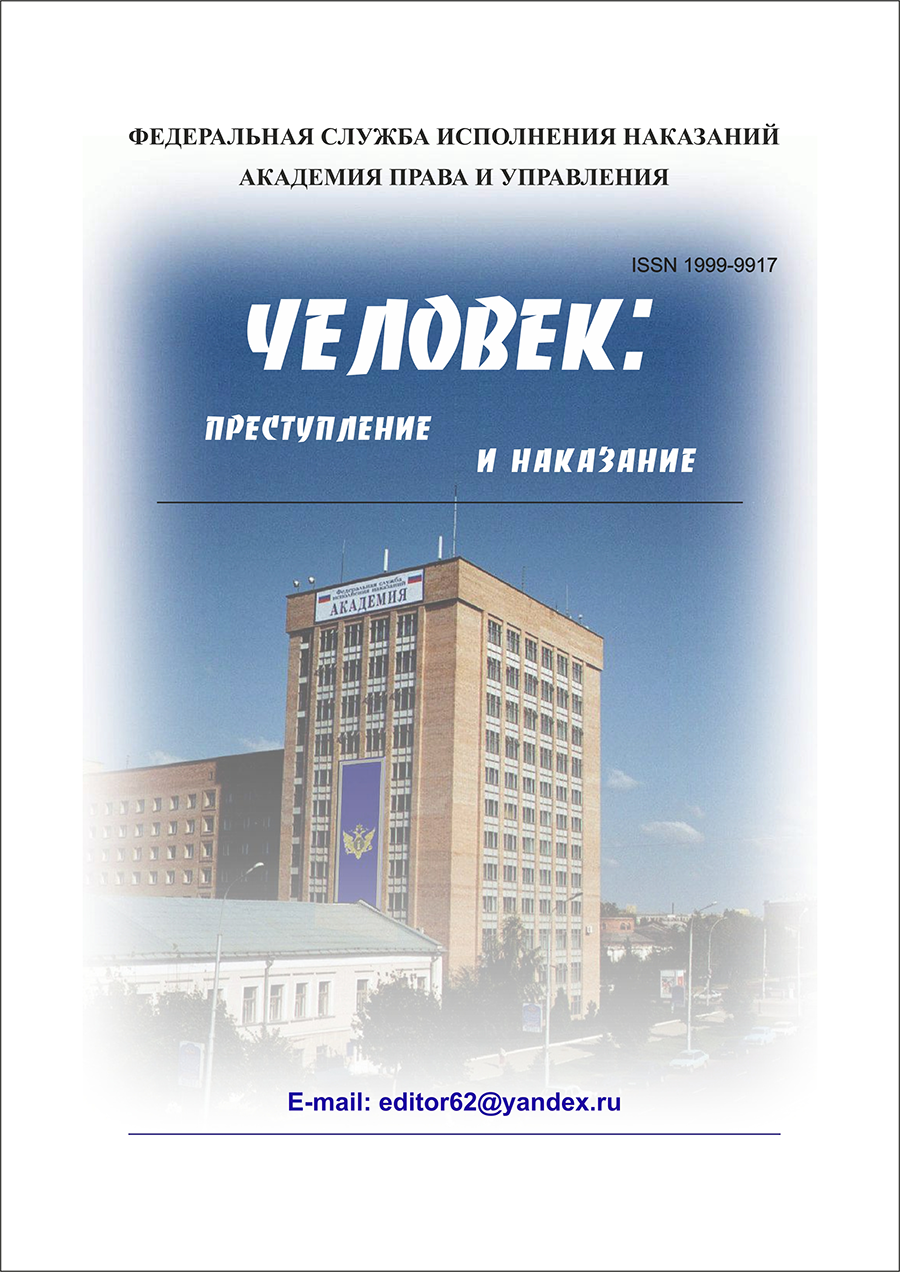One of the most difficult areas of state power activity is the application of law. Subjects authorized by the state to implement legal norms are obliged to carry out such application competently, objectively, without going beyond their own powers. This axiom is especially relevant in the framework of the application of legal norms in the system of execution of punishments. The subject of the study was the problem of determining the limits of discretion in the application of norms in the field of execution of punishments. It is concluded that in order to neutralize the negative manifestation in the form of unjustified expansion of the limits of discretion, it is necessary to improve the quality of legislative activity, as well as the level of competence and professionalism of law enforcement officers themselves.
application of law, implementation of law, limits of discretion, penal enforcement system
1. Vas'kovskiy E. V. Rukovodstvo k tolkovaniyu i primeneniyu zakona. M. : Gorodec, 1997. 128 s
2. Gracheva Yu. V. Sudeyskoe usmotrenie v realizacii ugolovno-pravovyh norm: problemy zakonotvorchestva, teorii i praktiki : dis. … d-ra yurid. nauk. M., 2011. 535 s
3. Zhuravlev M. P. Stabil'nost' i dinamizm zakonodatel'stva kak uslovie obespecheniya zakonnosti v pravovom gosudarstve // Leningradskiy yuridicheskiy zhurnal. 2008. № 1(11). S. 50-59
4. Santashova L. L., Hudyakova E. A. Sovershenstvovanie pravovogo regulirovaniya mer pooschreniy i vzyskaniy, primenyaemyh k osuzhdennym k lisheniyu svobody // Penitenciarnaya nauka. T. 13. 2019. № 2. S. 249-255
5. Fridmen L. Vvedenie v amerikanskoe pravo. M., 1992. 403 s
6. Chertova N. A., Yurinskaya I. S. Mehanizm prinyatiya sudebnogo resheniya: teoreticheskie aspekty // Vestnik Severnogo (Arkticheskogo) federal'nogo universiteta. Ser. Gumanitarnye i social'nye nauki. 2015. № 3. S. 118-125









